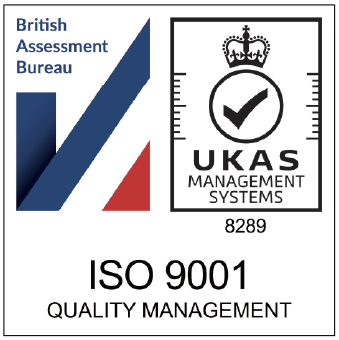It feels like eCommerce warehousing and logistics has developed a language all of its own. If you don’t know your ASN from your EDI, help is here.
You can stop scratching your head right now, we have put together our handy guide to help you get up to speed with all the latest eCommerce, warehousing and logistics abbreviations.
Ready to level up your knowledge and sound like an expert? Enjoy the guide (you can thank us later!)
3PL
Short for third-party logistics providers (just like 3PL)
3rd Party Logistics
A brands use of a third-party logistics specialist to outsource elements of its distribution, warehousing, and fulfilment.
ASIN
Amazon Standard Identification Number, a 10-character alphanumeric unique identifier assigned by Amazon to your products.
ADC
Automated Data Collection
Ad Valorem
Latin for, [according] to the value. This is a method for charging a duty, fee, or tax according to the value of your goods and services, instead of by a fixed rate, or by weight or quantity.
APS
Advanced planning and scheduling.
Billing Address
The address that’s connected to a specific form of payment, typically a credit or debit card. Companies use the billing address to verify the authorised use of the card.
BOM
In a nutshell, a bill of materials is the complete list of all the items that are required to build your product.
Bonded Goods
Imported shipments on which the customs charges, including duties, taxes and any penalties are still owed.
Brick and Click Store
A business model where a company operates both an online and offline store.
Buy-to-Detail Rate
Ecommerce data that displays how many products were purchased per number of product-detail views.
Cart-to-Detail Rate
Ecommerce data that displays the number of products added to a shopping cart per number of product-detail views.
Cargo Manifest
Lists the details of the goods (nature, quantity, types and numbers, sender, destination, etc) and service ready for customs declaration.
Carriage Paid To (CPT)
Denotes that the seller incurs the risks and costs associated with delivering goods to a carrier to an agreed destination.
Carriage and Insurance Paid To (CIP)
This can be used for any transport mode, or where more than one transport mode is being used. The seller is responsible for arranging carriage to the named place, and also for insuring the goods.
Certificate of Origin
A document that confirms a product’s country of origin.
Cost and Freight
The seller must pay the costs and freight to bring the goods to a named port of destination.
COGS
The cost of goods sold
CPG
Consumer packaged goods
Custom Packaging
The bespoke design of packaging around your products from scratch rather than simply selecting a ready-made box that the product fits into.
Customs Brokerage
Where a third party is used for the clearance of your inbound or outbound shipments
Customs Declaration
An official document that lists and gives details of goods that are being imported or exported.
Customs Duties
A tax imposed on imports and exports of goods.
Drop-Shipping
Supply chain management method where does the seller does not keep any goods in stock and ships directly to the customer.
Eco-Friendly Packaging
Packaging and boxes that are kinder to the environment and can be reused and recycled, helping to reduce waste and pollution.
EDI Compliant
The ability to send and receive electronic documents in the specific format that your retail partner requires. If the compliance criteria are not met, penalty fees can be applied.
EPC
Electronic product codeis the RFID version of the UPC barcode. EPC is intended to be used for specific product identification.
Expedited Shipping
The process of sending your parcel at a faster rate than usual by prioritising it over others.
Ex-Works (EXW)
Refers to door to door shipment which places the minimum responsibility on the seller and more responsibility on the buyer. The seller only has to make the goods available (and packaged), at a specified place, usually the seller’s factory or depot.
FMCG
Fast-moving consumer goods or products that sell ‘fast’, examples of FMCG products are milk, eggs, shampoos and toothpaste.
FIFO
First in, first-out (FIFO) is an accounting method that assumes that the oldest merchandise is sold first. The associated costs are then used to determine profitability.
Free Carrier (FCA) Shipping
FCA shipping means that it is the seller’s responsibility to arrange most or all of the country stages. The buyer then arranges all other stages to the cargo’s ultimate destination.
Freight Shipping
The process of transporting goods and cargo by land, sea or air.
Free Zone
An area within a country (e.g. a seaport, airport, warehouse or any designated area) regarded as being outside its customs territory. This allows importers to bring goods there without having to pay customs duties and taxes.
Flat Rate Shipping
When a single rate is charged for shipping a package, regardless of its weight or size.
GVW
Gross Vehicle Weight
International Shipping
A parcel or group of parcels that are taken from one country and delivered to your customer in another.
Landed Cost
The total price of your product or shipment once it has arrived at a buyer’s doorstep.
LIFO
Last in, first-out (LIFO) is a method used to account for inventory that records the most recently produced items as sold first. The last item is then presumed to be the first to be sold. (Because it keeps profits artificially lower, LIFO is only used in the U.S – It’s prohibited in other countries)
MSRP
Manufacturer’s suggested retail price (MSRP), also referred to as the recommended retail price (RRP), or the suggested retail price (SRP)
Multichannel Retailing
This involves brands selling to consumers across a variety of different channels both on and offline.
NIFO
Next in, first-out (NIFO) is an inventory valuation method where the cost of sale of your item is based on the cost to replace it rather than on historical cost.
Non-Document Shipment
Non-doc are consignments that are considered to be of no monetary value.
Omnichannel Retail
A multichannel approach to sales that provide your customers with a seamless and unified shopping experience across desktop, mobile device, telephone or bricks and mortar stores.
Order Management Software
A technology platform solution that allows you to maximise efficiency and save costs by tracking, prioritising and fulfilling orders.
Order Tracking
This will give you visibility of the location of your product from collection to delivery to a customer.
Picking Lists
A document that is sent to your warehouse pickers to fulfil customer orders.
POD
Point of delivery
Pro-forma Invoice
Also known as an estimate or quote and occurs before shipment or delivery of your goods.
Prohibited Items
Items that cannot be sent on any delivery network. Everyday items such as aerosols, nail varnish and perfume are considered to be dangerous goods. (Always check the latest guidelines with your delivery partner)
Real-Time Carrier Shipping Rates
This is a method of pulling your exact shipping rates based on the carrier’s latest charges and automatically pushing them into the checkout as your customer places an order and helps to cover both under and overcharging for shipping.
Same-Day Delivery
Products are delivered to your end customer on exactly the same day they placed the order.
Ship
When an order has been sent to your end customer at their specified location.
Shipment Contents or Goods
This is the items that are contained in your parcel.
Shipping
To send your goods to the end customer by road, rail, air or sea.
Shipping Insurance
This offers you protection if goods are lost, stolen or damaged during transit.
Shipping Zones
Geographical areas that carriers will ship your products to. Some zones can be more expensive than others to ship to (usually based on location and distance) and you can restrict the zones that you ship too if the costs are too high.
SKU
‘Stock Keeping Units’ are product codes that you use to easily search and identify your stock.
Supply Chain
The management and flow of your goods and services across your suppliers.
Transit Times
The planned travelling time from port to port. This may change depending on how many hubs are being used to transport the goods.
Waybill
The official label that will travel with your products.
Waybill Number
The unique number that helps you to track your parcel.
WD
Warehouse distribution
WIS
Warehouse inventory management
Volumetric Weight
Refers to the overall weight of your parcel and is then measured in volumetric kilograms. Volumetric weight is usually calculated by multiplying the length, width and height of a parcel (in cm) and then dividing that figure by 5000 (some carriers you divide by 4000 so it’s always worth checking this)
PS, want to know more about the advantages of ecommerce order fulfilment and warehousing? Contact 3PL today for a chat about how outsourcing your order fulfilment can help your business to grow faster.
Speak to 3PL about your eCommerce order fulfiment
It’s time to supercharge your ecommerce brand business and overtake your competitors. Speak to 3PL today and find out how we can take your ecommerce fulfilment to the next level.


